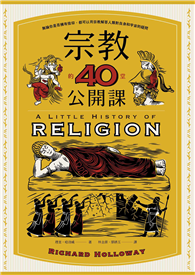Trauma was a potent influence in the lives of pre-1924 Eastern European Jewish immigrants. They uprooted themselves because of grinding poverty, anti-Semitic discrimination, pogroms, and the violence of World War I. This book's psychoanalytically-informed life stories, based on 22 in-depth interviews with the immigrants' adult children, tell the tales of these immigrants and their children. Many of the children believed their parents had left their lives in Eastern Europe behind them. This disavowal--aided by the immigrants' silence and denial--allowed their children to minimize the trauma and loss their parents suffered both before and after immigrating. I analyze the impact of parental trauma and loss on the second generation. Trauma and loss affected the transmission of memory, and, consequently, often immigrants' recollections were not passed on to future generations. The topics of trauma and loss in the lives of Eastern European immigrants are relevant in understanding current immigrants to America. Often immigrants' children tried to repay the debt that they felt was incurred by their parents' sacrifices. Resilience, accomplishment, and their transition from their immigrant parents' world to their own full participation in the American milieu characterized the adult lives of the immigrants' children.
| FindBook |
有 1 項符合
They Left It All Behind: Trauma, Loss, and Memory Among Eastern European Jewish Immigrants and Their Children的圖書 |
 |
They Left It All Behind: Trauma, Loss, and Memory Among Eastern European Jewish Immigrants and Their Children 作者:Hahn、Hanna 出版社:Rowman & Littlefield Publishers 出版日期:2019-10-31 語言:英文 規格:平裝 / 302頁 / 22.86 x 15.24 x 1.73 cm / 普通級 / 初版 |
| 圖書選購 |
| 型式 | 價格 | 供應商 | 所屬目錄 | $ 3000 |
死亡/悲傷/喪親之痛 |
|---|
| 圖書館借閱 |
| 國家圖書館 | 全國圖書書目資訊網 | 國立公共資訊圖書館 | 電子書服務平台 | MetaCat 跨館整合查詢 |
| 臺北市立圖書館 | 新北市立圖書館 | 基隆市公共圖書館 | 桃園市立圖書館 | 新竹縣公共圖書館 |
| 苗栗縣立圖書館 | 臺中市立圖書館 | 彰化縣公共圖書館 | 南投縣文化局 | 雲林縣公共圖書館 |
| 嘉義縣圖書館 | 臺南市立圖書館 | 高雄市立圖書館 | 屏東縣公共圖書館 | 宜蘭縣公共圖書館 |
| 花蓮縣文化局 | 臺東縣文化處 |
|
|
作者簡介
Hannah Hahn maintains a full-time private practice as a psychologist and psychoanalyst in New York City. After graduate-level work in English literature, she obtained a master’s degree in psychology from Harvard University, a PhD in clinical psychology from Columbia University, and psychoanalytic certification from the Institute for Contemporary Psychotherapy, where she currently supervises candidates. She taught attachment at the New York Institute for Psychoanalytic Training in Infancy, Childhood, and Adolescence. Her publications and presentations include "They Left it All Behind," in M. O’Loughlin’s The Ethics of Remembering and the Consequences of Forgetting (2015) and "A Safe Place to Stand: The Holding Environment with Child Patients and Their Parents" (2005).
|










